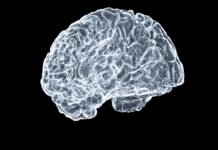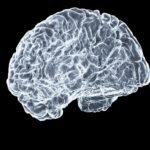Girik Malik
- Girik Malik, 30, is an applied scientist at Amazon Web Services.
- Earning a Ph.D. in AI could take five to six years, Malik told Business Insider.
- But one would still be able to contribute to the fast-moving field even after graduation, he added.
This as-told-to essay is based on a conversation with Girik Malik, an applied scientist at Amazon Web Services. The following has been edited for length and clarity. Business Insider has verified his employment and academic history.
When I completed my Ph.D. in AI at Northeastern University in 2023, the AI job market was a world away from the red-hot AI talent war Big Tech companies are waging now.
I secured a job as an applied scientist at Amazon after interning there in the summer of 2022. This was before the company implemented a hiring freeze for the rest of that year.
Today, a top-flight AI researcher with a Ph.D. could see themselves scoring a million-dollar payday from companies like Meta. That said, the road to earning a Ph.D. isn't easy.
It demands lots of discipline and motivation. In fact, during one of my semesters, I was so caught up with coursework and research that I barely had time to eat. I ended up creating a simple stew and eating it week after week for the entire school term. It was just that hard.
That's on top of the time taken. A Ph.D. candidate could spend about five years trying to complete it. That time could have been spent gaining practical experience in the working world.
Getting a Ph.D is challenging but rewarding
There's still a lot of value to be gained from getting a Ph.D. in AI.
Of course, you could try to self-learn about the field through on-the-job training. You might even get to build some products yourself. But if you want to shape the future of AI, you need to do a Ph.D.
Going through the process of getting a Ph.D. will make your learning process a lot more structured and precise. That has become very important now, given how competitive AI research has become.
Just 10 to 15 years ago, a small change or tweak to a model would produce different results that could land you in a prestigious journal or an invitation to a high-level conference. That's no longer the case.
The bar has become much higher. You need to conduct more experiments, and you need to demonstrate results that generalize well across a wide variety of problems.
It's not too late to get a Ph.D. in AI
Some believe AI is progressing so rapidly that it may be too late to enter the field through the Ph.D. route. Detractors believe that all the innovations and breakthroughs in AI might be discovered by the time you graduate.
I disagree with that view. A Ph.D. in AI will be just as, if not more, relevant 50 years from now. This is because AI will become ubiquitous in our daily lives. They could be embedded in almost any code we write and the systems around us. You will need more, not fewer, people who can understand and work with AI.
AI systems aren't perfect. Their algorithms might break in the future, and when that happens, you will need people who understand AI at a fundamental level to come in and fix it. That's probably going to be someone who holds a Ph.D. in it.
It's like owning a car. It can be a perfectly nice car, but you will still need to train mechanics to fix it when it breaks down. We didn't stop teaching mechanical and automotive engineering just because we can make better cars. The same goes for AI.
Industry internships are important
I highly recommend doing internships during the summer breaks in between your Ph.D. studies. This matters even if you intend to stay in academia.
In my case, I did three internships, with the Bosch Center for Artificial Intelligence, Microsoft, and Amazon. I managed to obtain return offers from Microsoft and Amazon.
The best part about working in the industry is the easy access you get to data and compute.
In a university setting, you are often competing with five to six Ph.D. students to use a computing cluster. And even if you can run your algorithm, it is ultimately based on a limited dataset running on limited hardware. That algorithm may not work if you scale it up.
So take full advantage of those internships. The internships I did forced me to go beyond the textbook and solve complex problems.
One challenge I faced at my first internship at Bosch was getting my neural network to train on a large-scale dataset. For instance, I could have a massive dataset with over 2 million videos. That was at a far larger scale than I was used to at my university.
Dealing with that problem helped give me the skills to solve other infrastructure-related problems I encountered later on in my Ph.D. and my career.
Earning a Ph.D. in AI could open doors for you, but I would caution those pursuing it for the money. If somebody wants to pay you a few million dollars to work at their company, they will screen and filter candidates more aggressively.
If you can sustain that level of motivation for the five to six years it takes to complete your Ph.D., then go for it. I would, however, suggest applying that motivation elsewhere because you could achieve just as much in other areas.
Do you have a story to share about your graduate studies or career in AI? Contact this reporter at ktan@businessinsider.com.
Read the original article on Business Insider


































